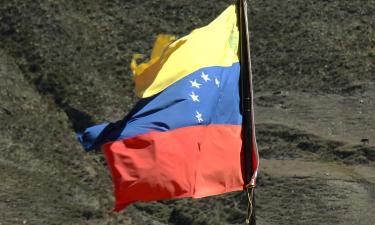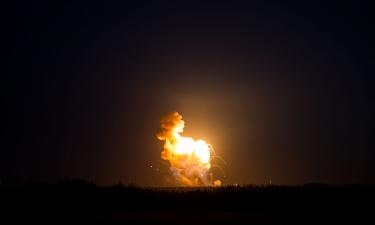Russia's new moves in Syria
By Harun Yahya

Syria's civil war has been ongoing for five years now, however regrettably it is considered an ordinary event for most people. Nowadays this lethal conflict has hit the headlines again. It is because it does not affect only Syria and its neighboring states but Europe and the United States, as well. For me, it is hard to still call it a civil war due to its unequivocally broad impact.
One of the most important news vis a vis the Syrian war is the refugee crisis in Europe. Many commentators regard this catastrophe as one of the worst since World War II. It is very likely that it will be on the agenda for a long time as the European countries are not much willing to host the refugees fleeing from the warzones in Syria. The neighboring countries that are hosting nearly 95% of the refugees have come to the boil since they have limited economic resources.
The other crucial development is Russia's expanding military presence in Syria. Many local and international journalists have touched on this move in their columns and stated that Russia would be a game changer in the region. This progress has unsettled many players including the US administration, yet Russia has some legitimate concerns of its own to make such moves. I'd like to underline that I am strongly opposed to the solutions of shedding blood and believe in the power of using an army as a deterrent force for the security of people, rather than an offensive tool.
In spite of the fact that the Cold War is over, it is quite clear that the alliances like the NATO and the EU are likely following an agenda to isolate Russia. This motive became clearer with the start of the Syrian war and exacerbated as the Ukrainian crisis burst out in the early 2014. While NATO and the US start to use their military bases in the Middle East effectively and Turkey let the US military use İncirlik base in Adana province of Turkey, it is understandable for Russia to attempt to protect its naval base in Syrian Port of Tartous, which was established in 1971. In addition, Russia does not deny the empowering of its naval base and providing military aid to Syria according to the contract they signed with Syria during the Cold War Era. Rumors that spread in the media of Russia's military expansion in Syria with some headlines such as "Russia puts boots on the ground in Syria" escalated tension in the West whereupon the US Secretary of State John Kerry told Russian Foreign Minister Lavrov that if the reports were correct, that would exacerbate the war. The US administration demanded Greece to deny Russia the use of their de facto airspace for flights after the Bulgarian foreign ministry blocked Russian aid transport planes over Bulgarian airspace. The Russian air force started to use Iranian airspace en route to Syria and in addition to that 39 Russian warships have passed through Turkish Straits in the first eight months of 2015. Above all, although there is not an official declaration from the Syrian administration, according to some local reports Russia initiated to build a military air base at the Latakia airport in Jableh, officially known as Bassel al-Assad International Airport. An important side note, this potential airbase is 180 km south of İncirlik airbase in Turkey.
It is not only the US who is anxious about Russia's intensifying involvement in Syria, Prime Minister Netanyahu was also concerned for Israel's security. Consequently, he made an urgent visit to Moscow and agreed with Putin to form a coordination mechanism to prevent mutual misunderstandings and unintended confrontations. Following this meeting Netanyahu stated, "Israel and Russia share a common interest to ensure stability in the Middle East."
Currently, Turkey is fighting against the PKK terrorist organization and ahead of an early elections coming up on the first of November. Yet, its plan to form a buffer zone and a no-fly zone to protect the Syrian civilians in the border of Syria stands still. Due to the recent tensions in Syria, Turkish Foreign Minister Sinirlioğlu visited his counterpart Lavrov, who said that both countries support a democratic and secure Middle East, despite having different approaches in the region. Lavrov also added, "Turkey has been one of our critical partners in international arena. We constantly exchange views about any international conflict, including Syria, North Africa and the Middle East." President Erdoğan is also planning a visit on September 23 to Putin to improve the mutual bonds and to find a solution for the conflict in Syria.
Russia's other concern in the region is the extremism and terrorism. Its intention is to take the necessary precautions before this threat reaches the Caucasus. Thus, it is striving to protect the regions belonging to the Syrian regime and preserve its own dominance. In addition, with the establishment of the buffer zone, an alliance of Turkey and Russia would play an important role in combatting against terrorism.
It is a clear fact that the Syrian war is not likely to end with coalition forces' bombardment or other blood shedding methods. It is reasonable to give Assad the region enclosing Latakia, Tartous and Damascus. However, the most urgent condition must be to stop the bombardments of the Regime on other regions outside that area, and therefore to cease all the deaths of civilians. For the remaining parts of Syria, the best option to eliminate radicalism is to establish the buffer zone with Turkey being the guarantor. With the intelligence gained as a result of joint efforts and the protection of the civilians in the buffer zone, there will be no room for radicalism. This will be for the benefit of all the civilians living both within the borders of the Regime or the remaining parts. When the region resettles, a democratic fair election including Assad being a candidate along with the people from the moderate opposition in Syria would be possible. The new elected government should not seek solutions through bloodshed but with diplomacy and understanding. An alliance of the regional countries including Russia would produce fruitful solutions for the well being of the Syrian people.
Harun Yahya
The writer has authored more than 300 books translated in 73 languages on politics, religion and science. He may be followed at @Harun_Yahya and www.harunyahya.com
Also read:
Russian army starts destroyng Islamic State in Syria
Russia forms legion of influence in Syria
Russian warships in Syria: Any guesses?
Subscribe to Pravda.Ru Telegram channel, Facebook, RSS!





